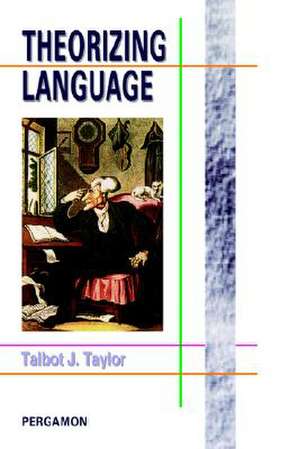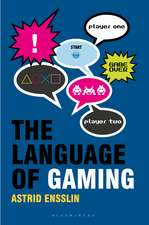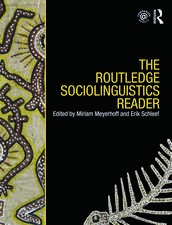Theorizing Language: Analysis, Normativity, Rhetoric, History
Autor Talbot J. Taylor, Taylor T. J. Tayloren Limba Engleză Hardback – 31 oct 1997
Language can only be explained as a cultural product of the reflexive application of its own creative powers to construct, regulate, and give conceptual form to objects of understanding. Language is itself, first and foremost, an object of cultural understanding. Theoretical analyses of language which have neglected its reflexive character, or simply taken its effects for granted, merely impose their own artificial structures on their analytical object.
The first part of this book discusses the consequences of neglecting this reflexive character for the technical concepts and methods which are used in analysing different types of communicational phenomena. In the second part, normativity - a crucial aspect of language's reflexive nature - is examined. The book's third and final part focuses on particular issues in the history of linguistic thought which bear witness to the rhetoric of language theorizing as a reflexive form of inquiry.
Preț: 348.99 lei
Nou
Puncte Express: 523
Preț estimativ în valută:
66.79€ • 69.64$ • 55.51£
66.79€ • 69.64$ • 55.51£
Carte tipărită la comandă
Livrare economică 13-27 martie
Preluare comenzi: 021 569.72.76
Specificații
ISBN-13: 9780080425771
ISBN-10: 0080425771
Pagini: 271
Dimensiuni: 234 x 156 x 17 mm
Greutate: 0.58 kg
Ediția:Revised
Editura: Brill
ISBN-10: 0080425771
Pagini: 271
Dimensiuni: 234 x 156 x 17 mm
Greutate: 0.58 kg
Ediția:Revised
Editura: Brill
Cuprins
Introduction. Enculturating language. Part I: Analytical Criteria. Scriptism and the anlysis of ideal speech. A Wittgensteinian perspective in linguistics. Do you understand? Criteria of understanding in verbal interaction. Communication and literary style: the principle of intersubjectivity. Part II: Normativity. Reflexivity, politics, and explanation in conversation analysis. Which is to be master? Normativity and linguistic form. Part III: Rhetoric and History. Why we need a theory of language. Communicational scepticism and the discourse of order. Bruner and Condillac on learning how to talk. The anthropomorphic and the sceptical. The origin of language: why it never happened. References. Index.











